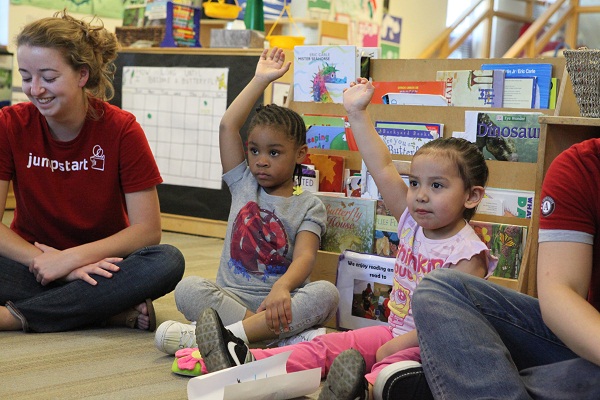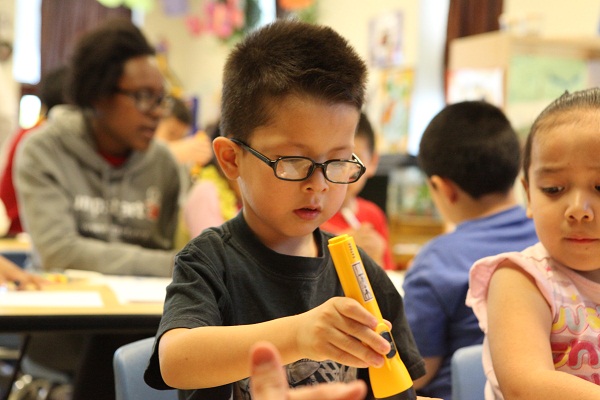Getting a ‘Jumpstart’ on literacy
By By Medill students Josh Freund, Julie Ma, Ashley Kim

Getting a ‘Jumpstart’ on literacy
By By Medill students Josh Freund, Julie Ma, Ashley Kim
Every Tuesday and Thursday afternoon around 3 p.m., a group of Northwestern University students in red Jumpstart T-shirts trickle into the Howard Area Community Center.
Once inside, the Jumpstart members follow a carefully crafted pre-school literacy curriculum to engage toddlers in poems, songs, reading and word games.
Kerry Brown, a Northwestern sophomore, is one of thousands of college students the non-profit organization places in preschool classrooms across the nation to help educators tackle the learning achievement gap in low-income neighborhoods.
“When you look at the disparities between education for middle class kids and low-income kids, it’s just a shocking gap,” Brown said. “It’s so sad to know that these kids (are) already behind when they get to kindergarten.”
According to a 2008 study by the U.S. Department of Health and Human Services, only about half of children from low-income families can write their own name by kindergarten. That number jumps to 75 percent and above in higher income brackets.
Tony Raden of the Ounce of Prevention Fund, a Chicago-based non-profit that advocates for early childhood education programs, says waiting to tackle these literacy issues in kindergarten is too late.

“Unfortunately, many children need expert teaching which untrained people cannot provide,” Bowman said. “It would clearly make more sense to fund the schools so there were enough qualified teachers.”
Brown says it’s a start. And it’s worth her effort.
“College students can make a difference,” she said. “At the end of the year, you see that they are making improvements, that they’re spelling their names, they’re writing out different letters, and the parents definitely seem to respond well. I think they’re seeing an improvement too.”
